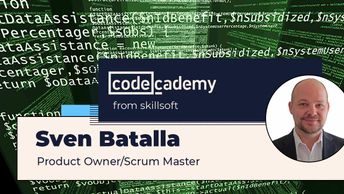IT Skills Cloud Computing and Virtualization Microsoft DP-100: Designing and Implementing a Data Science Solution on Azure
Unstructured data is prevalent in business and needs specific datastores for storing and managing this type of data. Azure provides several database systems that fulfill these needs.
In this course, you'll learn about the types of non-relational data and available Azure non-relational datastores. Next, you'll explore Azure Cosmos DB and the available API models that can be used with it. Next, you'll learn about the features and how to work with Azure data blobs and Azure Data Lake Storage Gen2. Finally, you'll examine how to secure data by using dynamic data masking and encrypting data at rest and in motion in Azure.
This course is one in a collection that prepares learners for the Designing and Implementing a Data Science Solution on Azure (DP-100) exam.
In this course, you'll learn about the types of non-relational data and available Azure non-relational datastores. Next, you'll explore Azure Cosmos DB and the available API models that can be used with it. Next, you'll learn about the features and how to work with Azure data blobs and Azure Data Lake Storage Gen2. Finally, you'll examine how to secure data by using dynamic data masking and encrypting data at rest and in motion in Azure.
This course is one in a collection that prepares learners for the Designing and Implementing a Data Science Solution on Azure (DP-100) exam.
| Objectives |
|---|
DP-100 - Azure Data Scientist Associate: Non-relational Data Stores
|


